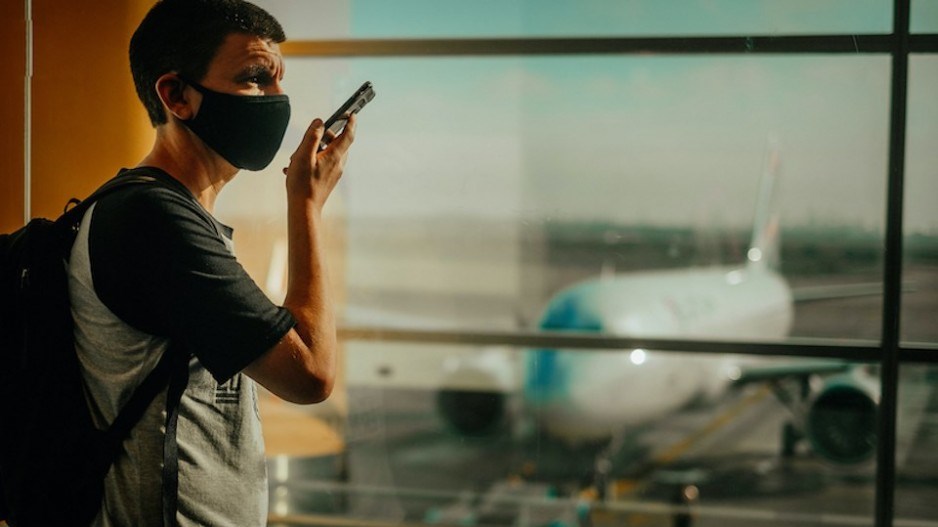Canada's international travel restrictions reduced the number of coronavirus cases entering the country during the first waves of the pandemic but did not prevent new outbreaks, according to a new study.
The study, led by University of British Columbia (UBC) researchers, finds that COVID-19 cases declined by 10-fold four weeks after new restrictions prevented most foreign nationals from entering the country in March 2020.
The researchers constructed a detailed timeline of how the virus was entering the country from January 2020 to March 201 by using publicly available viral genome sequences. The data was used to identify the geographic origin of COVID-19 cases, enabling the identification of 2,263 instances where it was imported.
The study, published today in eLife, is the first national-level genomic analysis of COVID-19 epidemiology in Canada.
“COVID-19 importations were accelerating in the lead up to March 2020, but experienced a sharp and drastic decline after travel restrictions were put in place,” said Angela McLaughlin, a UBC Ph.D. candidate in bioinformatics and the study’s lead author.
“The data shows that federal travel restrictions can be effective in reducing viral importations when implemented rapidly.”
But while the restrictions reduced the importation of the virus, they were not eliminated. Instead, they continued on "at a lower level through the spring and summer of 2020," notes the study. These new chains of transmission contributed to Canada's second wave and rebounded further in November. Additionally, eased entry requirements resulted in newly emergent variants of concern (VOCs) and interest (VOIs).
“Travel restrictions have a diminishing return if domestic transmission is high, if highly transmissible variants become widespread globally, or if there are many individuals exempt from travel restrictions and quarantine without access to rapid testing,” said McLaughlin.
Public health interventions to prevent the spread of COVID-19
The study notes that an estimated 30 unique genetic sublineages of the Alpha variant (B.1.1.7) were imported into Canada by February 2021. From there, these sublineages increasingly displaced the original COVID-19 strain by the second half of the second wave and into the third wave.
The only way to fully curtail the importation of new cases would be to continue the travel restrictions. But continuing to impose the rules poses a significant economic burden, according to the researchers.
“The social and economic repercussions of travel restrictions must be weighed relative to the risk of unhampered viral importations, which have the potential to overburden the healthcare system,” Mclaughlin explained.
During Canada's first wave, the data suggests that 49 per cent of cases probably originated from the United States and were mostly introduced into Quebec and Ontario. In the second wave, the United States continued to be the "predominant source of viral entry, at 43 per cent, alongside a larger contribution from India, 16 per cent, and the [United Kingdom], at seven per cent."
The study was led by researchers at UBC and the B.C. Centre for Excellence in HIV/AIDS (BC-CfE), alongside colleagues from Western University, the University of Arizona, and the Canadian COVID-19 Genomics Network (CanCOGeN).
According to the researchers, the study provides key insight into the "effectiveness of public health interventions" that allow policymakers to respond to viral threats in the future.




